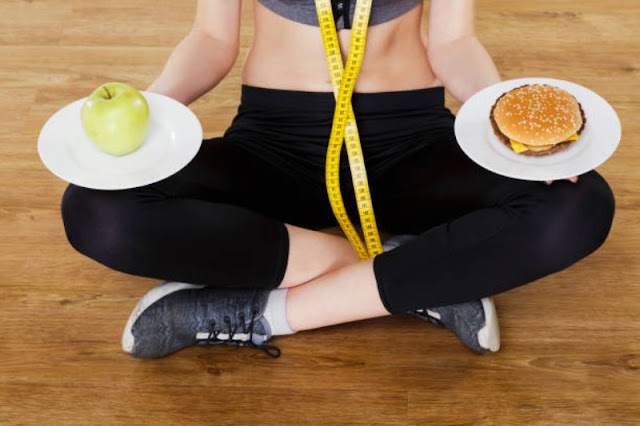Featured
- Get link
- X
- Other Apps
Exercise

Introduction
Exercise is a central aspect of a healthy lifestyle,
offering numerous benefits for the body and mind. Whether you engage in
high-intensity workouts or choose gentle forms of movement, exercise can
transform your life. This article will explore the importance of exercise, its
physical and mental health benefits, and how to incorporate it into your daily
routine. In addition, we will discuss various exercises, debunk common myths,
and provide practical tips to help you embark on a fitness journey that suits
your needs and preferences. So get ready to encirclement the transformative
power of exercise!
I. Physical Health Benefits of Exercise
Regular exercise offers a wide range of physical health
benefits. Let's delve into approximately of the key advantages:
Weight Management:
Physical activity helps burn calories, manage weight, and prevent
obesity. In addition, it increases metabolism and promotes fat loss while
preserving muscle mass.
Cardiovascular Health:
Exercise strengthens the heart and improves cardiovascular
health. It decreases the risk of heart disease, lowers blood pressure, improves
cholesterol levels, and enhances overall cardiovascular function.
Bone and Muscle Strength:
Weight-bearing exercises like resistance training promote
bone density and help prevent osteoporosis. Strength training exercises also
build muscle strength and endurance, supporting overall physical performance.
Enhanced Energy Levels:
Regular physical activity boosts energy levels and reduces
feelings of fatigue. In addition, it increases oxygen and nutrient delivery to
the body's tissues, improving overall vitality and reducing the risk of chronic
fatigue.
Improved Immune Function:
Exercise supports a healthy immune system by promoting
circulation and the production of immune cells. Regular physical activity
reduces the risk of common illnesses like colds and flu.
II. Mental Health Benefits of Exercise
Exercise not only benefits the body but also has a profound
impact on mental health and well-being. Let's explore some of the mental health
advantages:
Reduced Stress and Anxiety:
Physical activity helps reduce stress and anxiety by
triggering the release of endorphins, known as "feel-good" hormones.
It can improve mood, promote relaxation, and alleviate symptoms of anxiety and
depression.
Enhanced Cognitive Function:
Regular exercise has been shown to improve intellectual
function, memory, and concentration. In addition, it stimulates the growth of
new brain cells and enhances brain plasticity, contributing to better overall
brain health.
Boosted Mood and Happiness:
Exercise has a positive impact on mood, promoting feelings
of happiness and well-being. In addition, it can alleviate symptoms of
depression and improve self-esteem and body image.
Stress Management:
Engaging in physical activity provides a healthy outlet for
stress management. Exercise can help clear the mind, reduce tension, and
improve sleep quality, leading to better overall stress resilience.
Increased Brain Health:
Regular exercise has reduced the risk of cognitive worsening
and neurodegenerative diseases like Alzheimer's and dementia. It supports brain
health and may slow down age-related mental degeneration.
III. Incorporating Exercise into Your Daily Routine
Making exercise a part of your daily routine is essential
for reaping its benefits. Consider the following tips to help you incorporate
exercise into your lifestyle:
Find an Activity You Enjoy:
Choose an exercise or physical activity that you genuinely
enjoy. It could be anything from running, cycling, dancing, swimming, or
practicing yoga. When you want the action, you'll likely stick with it in the
long run.
Set Realistic Goals:
Establish realistic goals based on your fitness level and
personal preferences. Start with small steps and gradually increase intensity
and duration to avoid burnout or injury. Then, celebrate your progress along
the way.
Create a Schedule:
Schedule your exercise sessions like you would any other
appointment. Find a time that works most fantastic for you, whether before
lunch, during lunch breaks, or in the evening. Consistency is critical to
building a habit.
Mix Up Your Routine:
Keep your workouts interesting by incorporating variety. For
example, try different types of exercises and alternate among cardio, strength
training, and flexibility exercises. This helps prevent boredom and works for other
muscle groups.
Listen to Your Body:
Please pay attention to your body's cues and respect its
limits. Start slowly, warm up before exercise, and cool down afterward. If you
experience pain or discomfort, adjust your routine or consult a healthcare professional.
Stay Hydrated and Fuel Your Body:
Drink plenty of water before, during, also after bodybuilding
to stay hydrated. Fuel your body with a balanced diet with carbohydrates,
proteins, and healthy fats to support energy levels and muscle recovery.
Get Support:
Consider exercising with a friend, joining a fitness class,
or hiring a personal trainer. Support and accountability can help you stay
motivated and committed to your fitness journey.
Conclusion
Exercise is a powerful tool for nurturing both the body and
mind. By incorporating regular physical activity into your daily routine, you
can reap the countless physical and mental health benefits it offers. Whether through
cardiovascular workouts, strength training, or mind-body practices like yoga,
find an exercise regimen that suits your needs and preferences. Then, embrace
the transformative power of exercise and embark on a journey of improved
physical fitness, enhanced mental well-being, and a healthier, happier life.
Remember, every step towards an active lifestyle is a step towards a better
you.
- Get link
- X
- Other Apps
Popular Posts
Adapting Your Diet to Different Fitness Goals
- Get link
- X
- Other Apps


Comments
Post a Comment